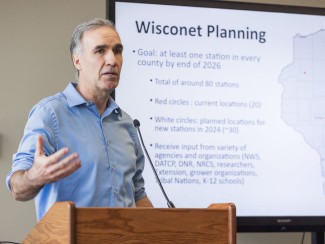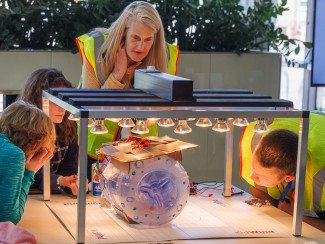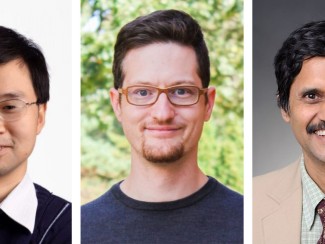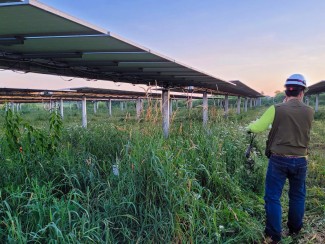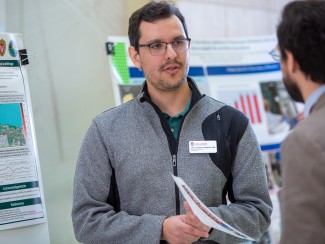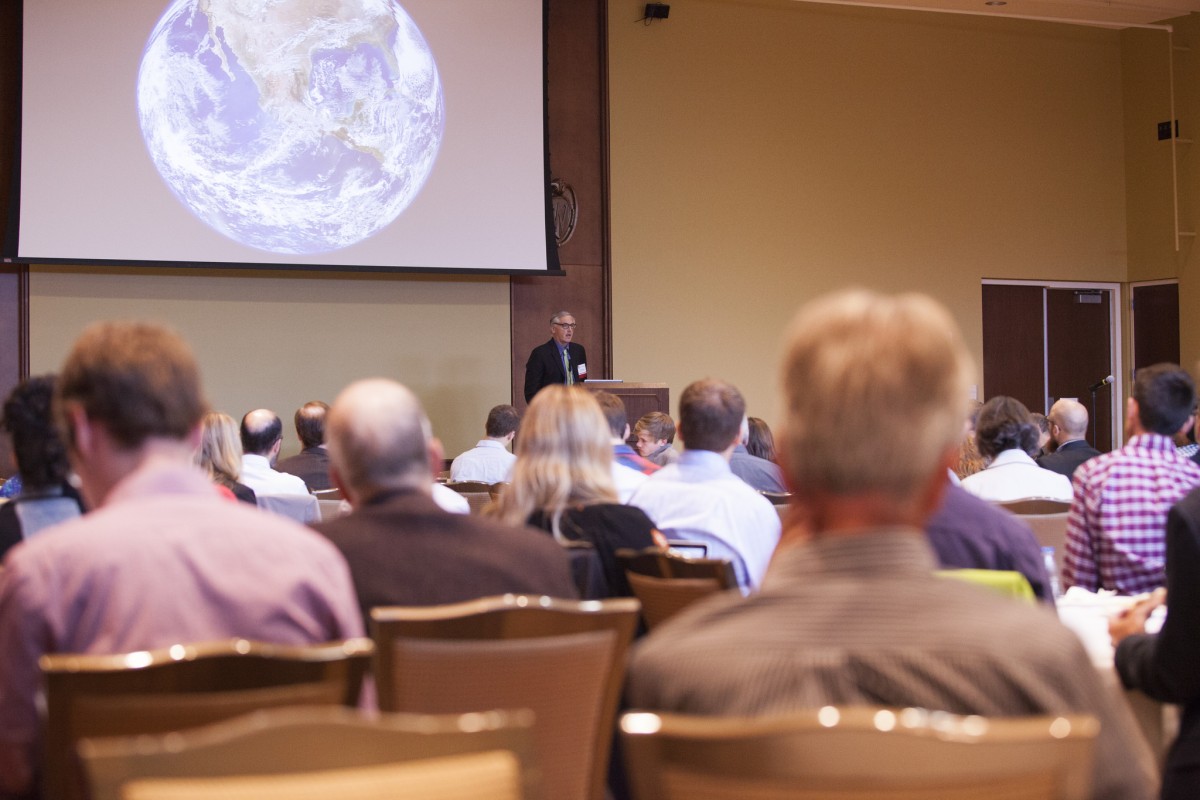
When we think of what energy research looks like, we might imagine scientists debating measurements on the physical nature of energy systems, or engineers in a lab designing a new kind of solar panel. Though it might not seem as obvious, social and political forces are central to our energy research as well.
These forces, says Neil Stenhouse, UW–Madison assistant professor of life science communication, also have an enormous effect on our energy policy, infrastructure development, and energy use.
In a free public talk entitled “Social Science, Political Economy, and Why They Matter for the Future of Energy,” on Monday, December 5 in room 1115 of the Wisconsin Energy Institute, Stenhouse will discuss how science communication research can help us understand how the social and political influence our energy system.
In advance of the event, Stenhouse also shared with us some thoughts on what makes the science of communication, or “sci comm,” such an important part of our transition to clean energy.
How would you explain the concept of science communication to someone not familiar with the term?
When I tell people what I do, I describe it as how people think about and respond to scientific issues like climate change and GMOs. It’s also about how communication affects how people respond to these issues.
When you talk about what you do, how do you juxtapose it with the so-called hard sciences like chemistry or biology?
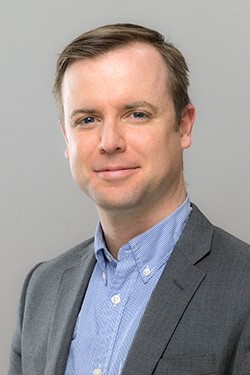
Just as we look to Wisconsin Energy Institute experts to understand the how the nuts and bolts of energy research fits together, social scientists are doing the same kind of scientific research to measure how people perceive scientific issues, how citizens, scientists, lobbyists, legislators and other groups influence each other, and how their behavior influences societal outcomes. When we ask, for example, “what makes individual citizens want to support or oppose energy development?,” that’s where social science comes in.
How does the study of science communication address how people take in information?
There are many different areas of science communication. Some overlap partly or completely with science education – for example, testing whether people can better understand concepts when they are explained using metaphors, such as using the metaphor of a “heat-trapping blanket” to explain how greenhouse gases warm the planet. But science communication doesn’t always focus on purely “scientific” information. It’s not only about how to get people to understand things like how the carbon cycle works or the basics of the climate system. It can also be about what kind of ways of presenting information about climate change makes it seem “bad” versus “not bad.” The feeling of badness isn’t something that comes from science, but from individuals themselves. Questions about how worried we should be about things aren’t questions hard science can answer on its own.
Given that there can be many interpretations to science information depending on how it is presented, how can citizens decide what information to trust?
I can’t make definitive recommendations – I think more work needs to be done to figure out the best ways to advise citizens on this. However, based on the research I have seen, I’m guessing the recipe for seeking good information efficiently is similar to what scientists themselves do when they read about a finding in some other field that is not precisely their own. You’re going to read articles or blog posts by experts in the field to see what they think, then maybe deliberately seek out a contrary view to see if there’s any good point being made there, and then somehow make a decision.
This is something we can study empirically. We could make actual rules for how to do this, put them in a list, and give that list to regular citizens to see how it impacts the information they seek out, and the ways they use that information.
But for that kind of thing to work, people have to want to get things right. Most people, myself included, say, “Well, I already know how to find good information, so I’ll just keep reading what I’m reading.” To find a way of making people want to change their behavior, you have to show that their habits don’t already lead in the direction of truthful news, then give them options for change.

